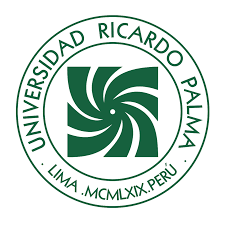Incorporation of the Lean Construction model to innovate time management in construction projects
DOI:
https://doi.org/10.31381/perfilesingenieria.v20i21.6599Keywords:
Lean Construction, Last Planner System, productive work, contributory work, non-contributory work, time management.Abstract
In the construction industry, productivity is sought to improve by innovating time management, a poor indicator in projects where activities are executed conventionally. In this sense, the research aims to evaluate the consequences of delays in projects and how to optimize time by incorporating the Lean Construction model. The procedure considers the review of bibliographic material, articles, construction magazines and projects that propose innovating time management with the Lean Construction model through the tools Last Planner System (LPS), productivity balance sheet, productive work (TP). , contributory work (TC), non-contributory work (TNC), percentage of parts completed (PPC) and application of the 5”s” tool. The results found that support the article correspond to the Barranco 360° project located in Lima that includes information on the productivity balance chart close to 80%, TP (40%), TC (41%) and TNC (19%), to the project Residencial Gold San Francisco in Cusco with a productivity index of 39.5% and project “A” with a productivity deficiency of 20% in its construction works. It is concluded that the statistical results applying Lean Construction tools allow time management, mitigating restrictions and providing quick and efficient solutions, optimizing productivity without neglecting quality in the execution of the project.
Downloads
References
Alvarado, L. (2021). Filosofía Lean Construction: Comparación de beneficios en empresas emergentes y grupos constructores exitosos. [Tesis para optar el Título profesional de Ingeniero Civil en Obras Civiles]. Pontificia Universidad Católica del Perú.
Virgilio Ghio. (2001). Productividad en obras de construcción. Lima, Perú. Pontificia Universidad Católica del Perú- Copyrigh© 2000 Fondo Editorial de la Pontificia Universidad Católica del Perú. doi:ISBN 9972-42-417-0, Lima, 2001.
Guzmán, A., (2014). Aplicación de la filosofía Lean Construction en la planificación, programación, ejecución y control de proyectos. PUCP, Lima. Lima: Tesis para optar por el título de Ingeniero civil, Pontificia Universidad Católica del Perú. Obtenido.https://tesis.pucp.edu.pe/repositorio/bitstream/handle/20.500.12404/5778/
?sequence=1&isAllowed=y
Herrera, R., (2019). Metodología del seguimiento efectivo del plazo contractual de proyectos de construcción de edificaciones multifamiliares. UPC, Lima. Lima: Tesis para optar el título profesinal de Ingeniero Civil, Universidad Peruanana de Ciencias Aplicadas. Obtenido de https://repositorioacademico.upc.edu.pe/handle/10757/626586#:~:text=A%20partir%20de%20lo%
Bernabé, A., (2021). La gestión del tiempo en obras de edificación para optimizar el plazo contractual. Tesis para optar el título profesional de Ingeniero Civil, Universidad Ricardo Palma, Lima. Lima: URP. Obtenido de https://repositorio.urp.edu.pe/bitstream/handle/20.500.14138/4693/T030_47732511_T%20%20
Corahua, W. , Lozano, J. (2017). Aplicación de la filosofía Lean Construction en la Productividad de la mano de obra en los elementos estructurales: columnas, placas, vigas y losas aligeradas de la residencial Gold San Francisco en la ciudad del Cusco. [Tesis para optar el Título profesional de Ingeniero Civil en Obras Civiles] Universidad Andina de Cusco.
Porras, H (2014). Filosofía Lean Construction para la gestión de proyectos de construcción: una revisión actual. ISSN: 1794-4953.
Flores, D. (2020). Interacción entre BIM y Lean construction analizadas en proyectos de edificación. [Tesis para optar el Título profesional de Ingeniero Civil en Obras Civiles]. Pontificia Universidad Católica del Perú. https://repositorio.pucp.edu.pe/index/handle/123456789/172759
Chacmana, J. (2019). Gestión del tiempo para identificar las actividades críticas en la etapa de obra gruesa del centro comercial Real Plaza Este. [Tesis para optar el Título profesional de Ingeniero Civil en Obras Civiles]. Universidad Ricardo Palma.
Chambilla, L. (2019). Aplicación de la filosofía Lean Construction en el planeamiento del proyecto mejoramiento de los servicios de salud del hospital Hipólito Hunanue. [Tesis para optar el Título profesional de Ingeniero Civil en Obras Civiles]. Universidad Privada de Tacna. https://repositorio.upt.edu.pe/handle/20.500.12969/82
Valenzuela, I. (2018). Análisis y definición de estrategias para la implementación de las herramientas del Lean Construction
Katerine, Z. (2021). Implementación de la metodología Last Planner System en el déficit de la construcción del puente el Carmelo. [Tesis para optar el Título profesional de Ingeniero Civil en Obras Civiles]. Universidad Privada Antenor Orrego. https://repositorio.upao.edu.pe/handle/20.500.12759/7744
Ochoa, V. (2021). Confiabilidad de porcentaje de partes cumplidas en el índice de productividad. [Tesis para optar el Título profesional de Ingeniero Civil en Obras Civiles]. Universidad Ricardo Palma.
Published
How to Cite
Issue
Section
License
Copyright (c) 2024 Margarita Murillo Manrique

This work is licensed under a Creative Commons Attribution 4.0 International License.
In the event that the manuscript is approved for its next publication, the authors retain the copyright and assign to the journal the right of publication, edition, reproduction, distribution, exhibition and communication in the country of origin, as well as in the abroad, through print and electronic media in different databases. Therefore, it is established that after the publication of the articles, the authors may make other types of independent or additional agreements for the non-exclusive dissemination of the version of the article published in this journal (publication in books or institutional repositories), provided that it is explicitly indicated that the work has been published for the first time in this journal.
To record this procedure, the author must complete the following forms:

1.png)








